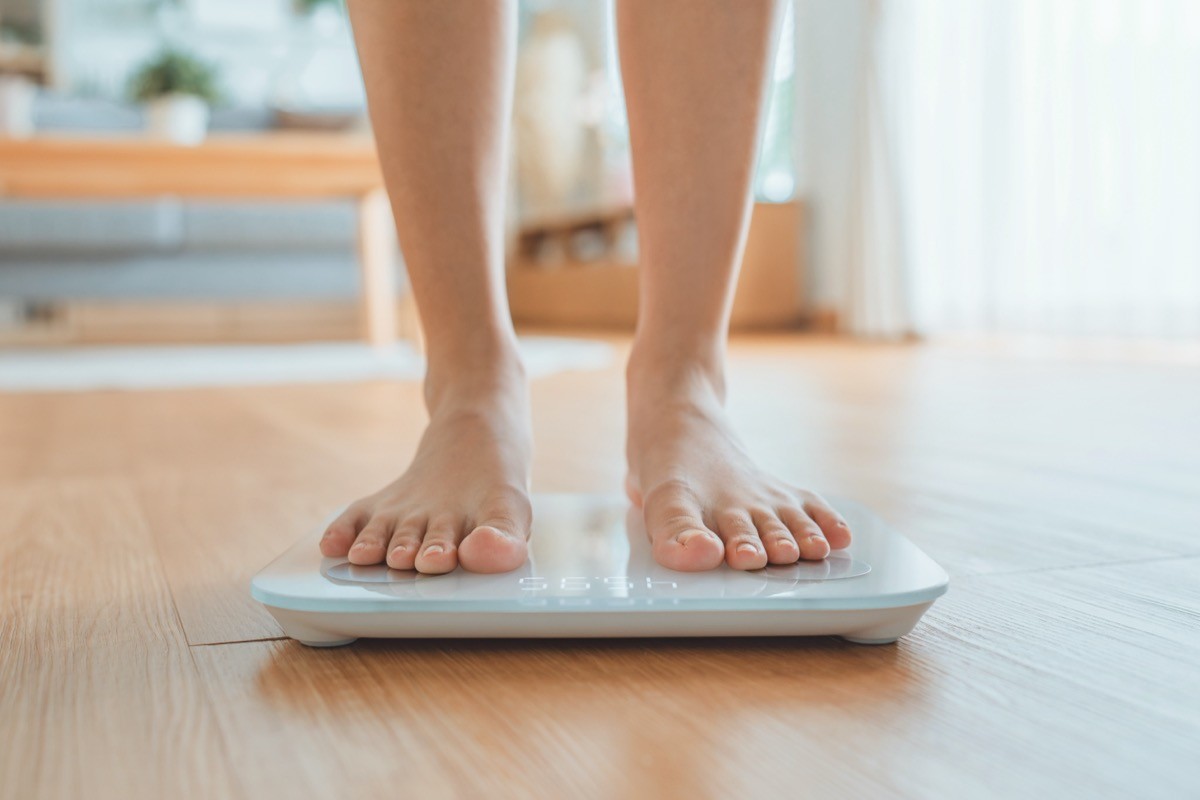If You Drink Green Tea for 2 Weeks, You’ll Notice These 5 Changes, Gastroenterologist Says
This simple beverage can improve everything from your gut health to your dementia risk.

Green tea is often touted as a superfood, but for us coffee drinkers, making the switch can feel impossible. But what if we told you that you’d start to reap some of green tea’s health benefits in as little as two weeks? That’s what gastroenterologist Joseph Salhab, MD, is telling his followers, explaining how this simple beverage can improve everything from your gut health to your dementia risk.
RELATED: Coffee Lowers Your Risk of Death By 14%—If You Drink It Like This, New Study Finds.
1
Your gut bacteria will be more balanced

“Green tea starts improving your gut bacteria in as little as 10 days,” shares Salhab in a TikTok video, referencing a 2012 study.
These researchers suggest that green tea can “act as a prebiotic and improve the colon environment by increasing the proportion of the Bifidobacterium species.”
Why does green tea have this effect?
“Green tea is packed with polyphenols, particularly epigallocatechin gallate (EGCG), which has impressive anti-inflammatory and antioxidant effects,” Raj Dasgupta, MD, chief medical advisor for Garage Gym Reviews, previously explained to Best Life. “EGCG works by inhibiting inflammatory enzymes in the body.”
2
Your liver will thank you.

Ehsan Ali, MD, also known as “The Beverly Hills Concierge Doctor,” recently told Best Life that green tea is an underrated superfood for liver health: “It’s rich in catechins, especially EGCG, which have been shown to reduce liver inflammation and fat buildup.”
Salhab points to a 2013 study in which people with nonalcoholic fatty liver disease (NAFLD) saw improved levels of liver fat and inflammation after drinking green tea with “high-density catechins.”
3
You could lower your dementia risk.

As Salhab notes, several studies have linked green tea consumption to improved cognitive health and a reduced risk of dementia.
A recent study published in the journal Nature found that people aged 65 and older who drank green tea daily had significantly lower amounts of cerebral white matter lesions, which can cause memory problems, balance issues, and mood changes, even leading to Alzheimer’s.
Likewise, a 2020 study published in the journal BMC Geriatrics concluded that high green tea consumption was “significantly associated with a lower prevalence of cognitive impairment in middle-aged and older individuals.”
RELATED: 9 Best Weight-Loss Teas, According to Nutritionists.
4
Your blood pressure might start to drop.

Next, Salhab says that “green tea extract reduces blood pressure, inflammatory biomarkers, and oxidative stress in patients with metabolic conditions,” pointing to a 2012 study.
This study focused on patients with obesity-related hypertension who took a daily green tea supplement, but a 2023 study also found that green tea consumption reduced systolic blood pressure in healthy individuals.
5
You could start to lose weight.

All of the benefits outlined by Salhab can certainly aid in your weight-loss journey, but green tea in and of itself is also a powerful tool in shedding pounds.
In fact, a 2013 study found that drinking green tea every day had major weight loss benefits thanks to its high levels of antioxidants, as Best Life previously noted.
“Consumption of four cups of green tea per day caused a significant decrease in body weight, body mass index, waist circumference, and systolic blood pressure,” read the study.





















